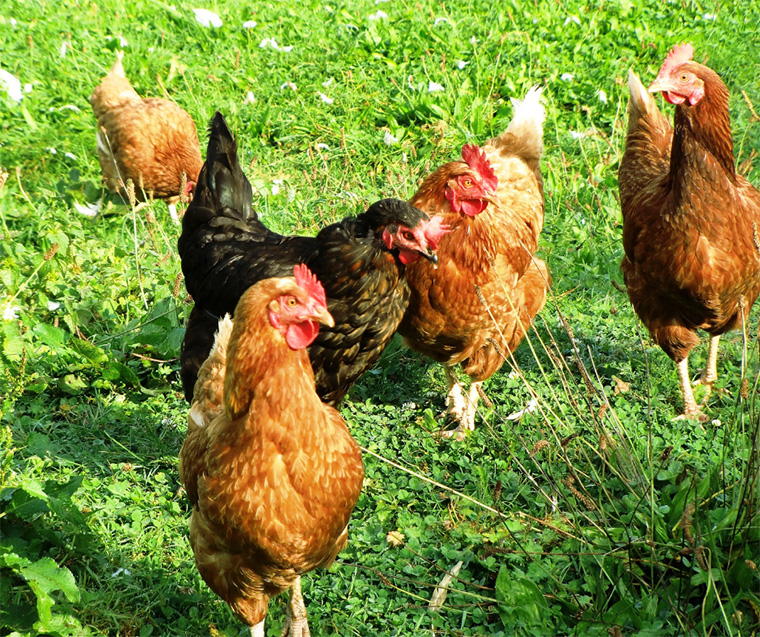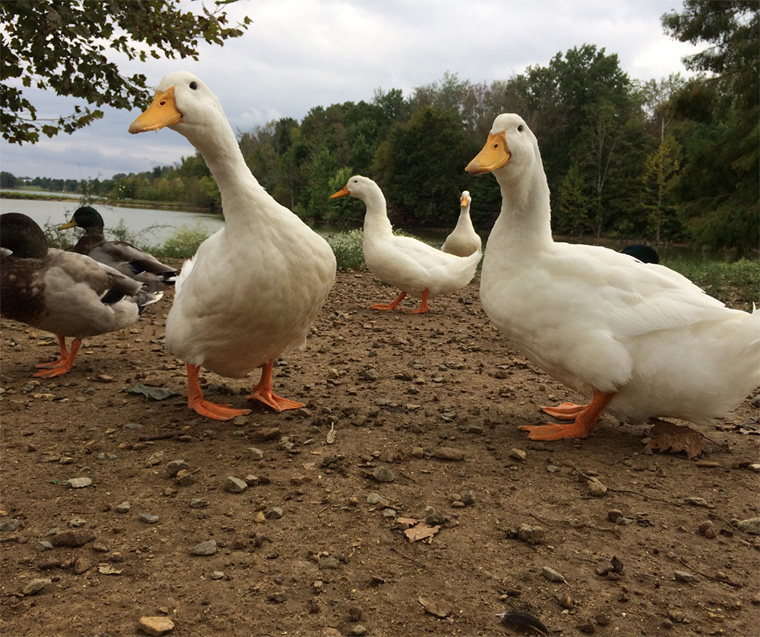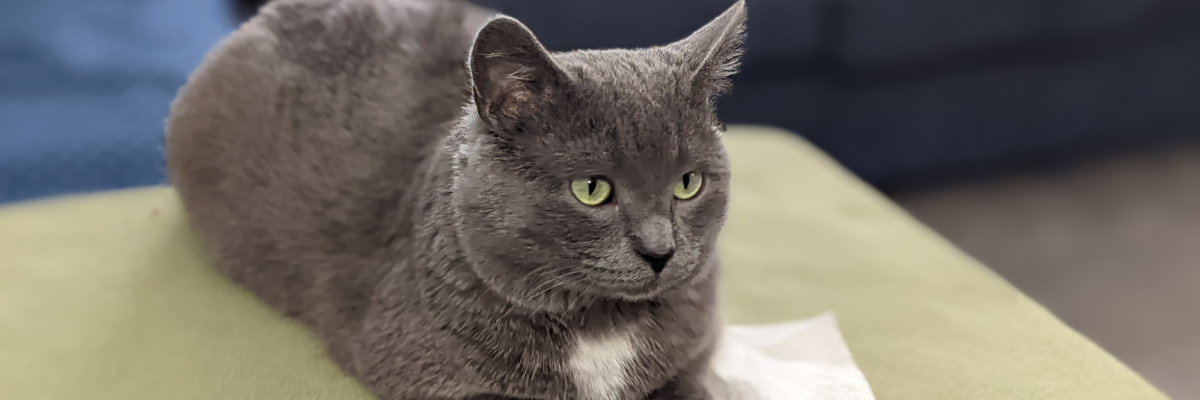Last week, Monroe County had its first confirmed case of Avian Flu (HPAI). It is believed that migratory birds are bringing this up as they travel back North.
Here at Lollypop Farm, we are taking precautions to protect the birds in our care. This includes securing the birds (except the emus) in non-public spaces and having staff sanitize their hands and shoes before entering areas where the birds are being housed.
We know many people in our area care for birds as well, such as owning a backyard chicken coop. We’ve compiled information on how Avian Flu spreads, how to help limit its spread, and the symptoms of the flu in both birds and humans.

How Does Avian Flu Spread and How Can I Prevent it?
Tips offered by USDA for bird keepers include restricting visitors to a minimum and keeping track of people who visit your property. Hygiene measures like the washing of hands can stop the spread to humans and between birds.
Check out this great visual example created by the CDC of how the virus can be spread: How Bird Flu is Transmitted.
Protect Your Flock
Avoid attracting wild birds to your residence with the following tips:
- Cover or enclose any outdoor feeding areas for poultry
- Promptly clean up any feed spills
- Consider reducing large puddles and standing water that may be a nice resting place for migratory birds
Symptoms of Avian Flu in birds:
- Open-mouth breathing
- Swelling of combs and wattles
- Swelling of legs
- Swelling around the eyelids
- Purple coloration in any of these regions mentioned above
If you suspect Bird Flu within your flock, please contact your veterinarian immediately.
Although rare for humans, the CDC has compiled a reported list of symptoms from people who have been infected by the virus in the past.
Symptoms of Avian Flu in humans:
- Conjunctivitis
- Fever
- Cough
- Sore throat
- Muscle aches
These symptoms have sometimes been accompanied by nausea, abdominal pain, diarrhea, and vomiting. These symptoms are common to many viruses. You should contact a medical professional if you are experiencing any of them so they can properly diagnose and treat you.

Sources:
newsweek.com/bird-flu-symptoms-chickens-how-protect-your-backyard-flock-explained-1682688
cdc.gov/flu/pdf/avianflu/avian-flu-transmission.pdf
https://extension.umn.edu/poultry-health/avian-influenza-basics-noncommercial-poultry-flock-owners



